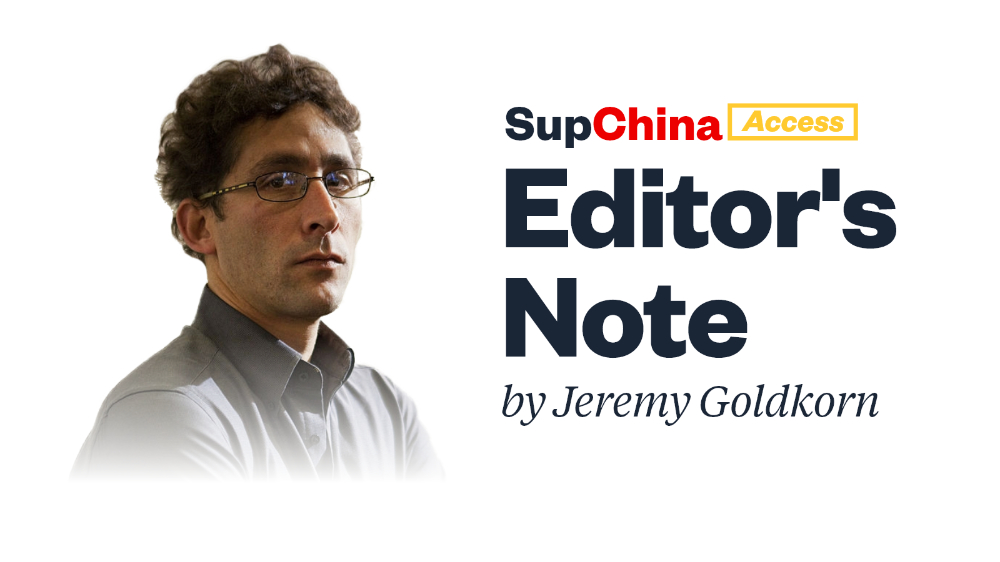Editor’s note for Thursday, July 29, 2021
A note from the editor of today's The China Project Access newsletter.

My thoughts today:
If you were the benevolent dictator of the United States — or France or the U.K., or perhaps especially India or Myanmar — you would surely consider destroying Facebook, and count it a social good.
At the very least, you would make Mark Elliot Zuckerberg pay his fair share of taxes, and stop spreading vaccine misinformation and incentivizing political polarization all over the world. You’d probably also break up Amazon and Google or at least rein them in, and some of us might also want to give Apple, Microsoft, and Tesla a few hard regulatory slaps, too.
This is probably the right way to start thinking about the Chinese government’s current treatment of Big Tech and publicly listed companies. This does not mean that there is nothing to worry about for entrepreneurs, investors, and anyone who likes the status quo.
On the contrary, from the shock suspension of Ant Financial’s IPO in November 2020 and the ongoing antitrust probes of Alibaba, Tencent, Meituan, and others to the suspension of Didi’s app for data violations at the beginning of this month, last week’s new minimum wage requirements, and the destruction of the multibillion-dollar private tuition industry, Xí Jìnpíng 习近平 has made it clear that markets, laws, and companies are all there to serve the country first, and only in ways that are deemed suitable by the Communist Party. Everything else is secondary.
This does not mean that entrepreneurship is dead, or that companies won’t be allowed to make money. TechCrunch, an industry news website, says that “China’s regulatory crackdown is good news for startups aligned with CCP goals,” and while social media and ecommerce platforms are in for a tough time, domestic semiconductor and hardware companies are probably going to benefit.
However, like the opening of the Shenzhen Special Economic Zone in 1980, no one knows what the results of this new experiment will be. And whereas in the 1980s, Beijing relinquished control of large parts of the market, it is now trying to wrest control back. The effects are going to change the whole world, for better or for worse.
We’ll continue to cover this subject, in detail: Our business editor, Chang Che, and I have been talking to all kinds of people, including investors, entrepreneurs, and political analysts, about China’s regulatory onslaught, and we’ll be featuring our research in the coming days.
One thing to read before that: an opinion piece by the urbane explainer and defender of the Chinese government Rèn Yì 任意, a.k.a. Chairman Rabbit, which broadly supports my views above. Ren concludes “China-concept stocks are inevitably in for a bumpy ride…Chinese enterprises may well be entering a very cold winter in terms of offshore financing. But that’s a price China’s regulators are likely willing to pay in the interests of governance.”
Our word of the day is Delta (virus) strain (德尔塔毒株 dé’ěrtǎ dúzhū).
—Jeremy Goldkorn, Editor-in-Chief






